Memorial of Saint John Neumann, Bishop

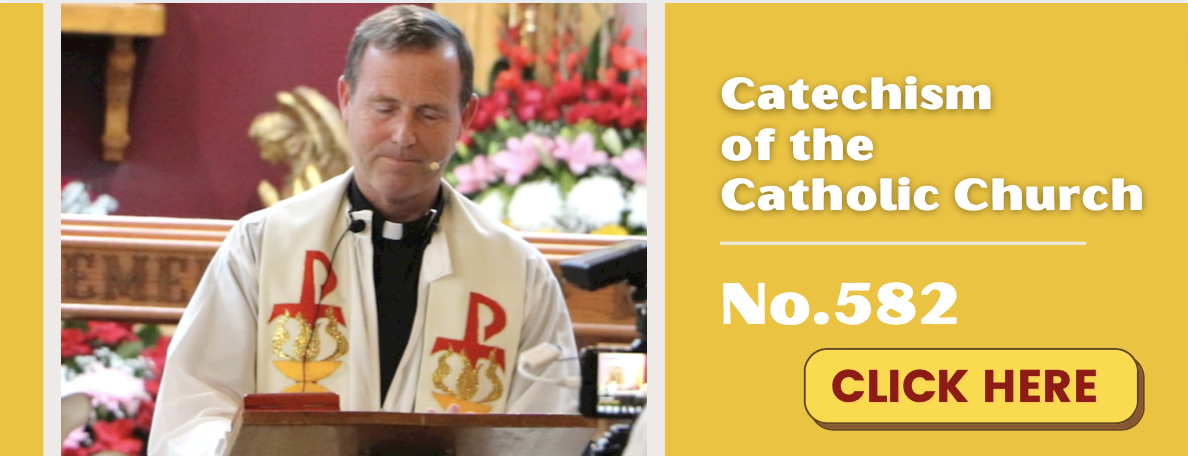

Fr. Ed Broom, OMV Oblates of the Virgin Mary
Catholic Ignatian Marian Spirituality
Monday of the Second Week of Advent
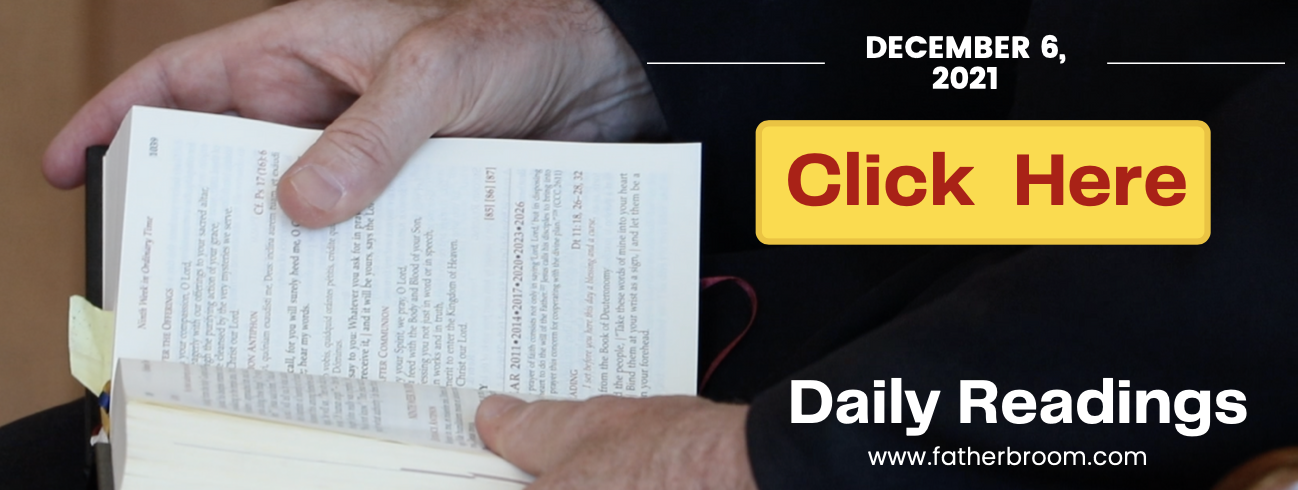


“For greater things you were born.” (Ven. Mother Luisita)
MONDAY, December 6th Lk. 5: 17-26 “Jesus said to them in reply, ‘What are you thinking in your hearts? Which is easier to say, ‘Your sins are forgiven,’ or to say ‘Rise and walk’? But that you may know that the Son of Man has authority on earth to forgive sins—he said to the one who was paralyzed, ‘I say to you, rise, pick up your stretcher, and go home.’”
“Prepare the way of the Lord, make straight his paths.” (Is 40:3) Advent is a time of preparation. Today’s meditation is Part 2 of a 3-Part Meditation to prepare us to receive the Lord of Lords and King of Kings, the Infant Jesus in the arms of Mary on Christmas Day by making a most well-prepared and fervent Confession.
Yesterday we meditated on Ten Ways Confession Sets Us Free—the fruits of Confession!
Today we will meditate on 10 Bible passages that demonstrate the greatest attribute of the Sacred Heart of Jesus towards poor sinners like ourselves—His Mercy!
10 SHORT MEDITATIONS TO PREPARE FOR MAKING A GOOD CONFESSION by Fr. Ed Broom, OMV
One of the greatest blessings and gifts that flows out of the Sacred Heart of Our Lord is a mercy that is expressed most deeply through the Sacrament of Confession. This Sacrament is also sometimes called the Sacrament of Pardon, Reconciliation, Penance, as well as the Sacrament of God’s Mercy.
Words that produce inexplicable peace, joy, consolation and hope are the words that the Catholic priest expresses in the words of absolution at the end of the Sacrament of Mercy: “And I absolve you of your sins: in the name of the Father, and of the Son, and of the Holy Spirit. Amen. Your sins are forgiven; go in peace!” The interior knowledge that all of my sins have been totally and completely erased, obliterated, wiped out and forgiven by the Blood that Jesus shed for me on Calvary produces a joy and peace that goes beyond the ability of human words to express!
The two most important and sublime gestures that a Catholic can do on earth are the following. To receive with faith, devotion and burning love the Sacrament of the most Holy Eucharist—the Body, Blood, Soul, and Divinity of the Lord Jesus Christ. The second is to confess one’s sins to the priest (who represents Jesus, our Healer and Friend) and receive sacramental absolution and forgiveness of sins.
This being the case, we should strive with all of the energy and fiber of our being to improve our interior disposition to receive these sacraments better every time we receive them. In a word, each reception of both of these sacraments should be better and more fervent then the prior reception! That should be our ideal and constant goal! May God assist us!
Therefore, this brief article is on the Sacrament of God’s mercy with the goal of enhancing within us a greater appreciation for this great Sacrament which flows from the loving Heart of Jesus pierced with the lance from which flowed His Precious Blood and Water that first Good Friday. (Jn 19:34)
This article expresses an original perspective and dimension in this sense that it is totally and purely Biblical. Actually ten Biblical passages will be cited manifesting ten different fruits, effects, blessings, and the overall spiritual reality of this great Sacrament of the mercy and love of Jesus the Redeemer.
It is our hope that everyone will be moved to have a limitless trust in this greatest of all of the attributes or virtues burning in the Heart of our loving Redeemer, His mercy, and have confidence to make a good Sacramental Confession. The Lord is waiting for you with love.
The greatest sinners can become the greatest saints if they simply trust in the mercy of Jesus. That which wounds the Sacred Heart of Jesus most, even more than sin itself, is the lack of trust in His mercy. Saint Paul encourages us with these words: “Where sin abounds, the mercy of God abounds all the more.” (Romans 5:20)
The following are ten Biblical passages related to the Sacrament of Confession, each in a unique way. Pray over these; meditate on them; trust in God’s mercy and then make the best confession in your life: “Taste and see the goodness of the Lord. Blessed is the one who takes refuge in him.” (Psalm 34:8-9)
1. Prodigal Son: Luke 15:11-32
Read and pray over the Parable of the Prodigal Son before going to Confession. Beg for the grace to understand what God really wants you to learn from this spiritual masterpiece. Every time you read and meditate upon this spiritual gem, God will enrich you with new and deeper insights.
However, in all times and places, the central message is that the Father is God, the Father who is full of love, mercy and compassion to all those who trust Him. Saint Pope John Paul II wrote an entire encyclical on this one Parable: Dives in Misericordia. Read it and meditate on it!
2. Psalm 51
Pray before and after going to confession Psalm 51. This is the heart-felt Act of Contrition that King David prayed after he committed adultery with Bathsheba and then murdered her husband Urias, an innocent man. Beg for the grace to have true repentance for your sins.
True sorrow, true and heartfelt contrition, is essential for making a good confession. David humbly admits that his sins are his own doing and he blames nobody except himself. May we own up to our sins and blame only ourselves always, like David, and trust always in God’s infinite mercy!
3. John 20:21-23
Read and pray over the Institution of the Sacrament of Confession that first Easter night when the Apostles were in the Upper Room and Jesus breathed on them the Holy Spirit saying: “Receive the Holy Spirit: whose sins you shall forgive they shall be forgiven; whose sins you shall bind shall be held bound.”
Be exceedingly thankful for this great gift bestowed upon the Church and its members the same day we celebrate Jesus’ victorious triumph over death, the day of His Resurrection from the dead. In fact, every time we go to confession we personally celebrate death to sin in our own person and rise to a new life of grace! Every confession is a Paschal-Easter experience! The Lord Jesus is risen in us, Alleluia!
4. John 21: 15-19
Read and meditate on this conversation between the Risen Jesus and Peter. After the Apostles have made a miraculous catch of fish, Jesus walks with Peter along the shore and asks three times if Peter really loves Him, to which Peter responds three times “Yes, Lord, I love you.” Peter is repairing for the three times that he denied knowing Jesus shortly after the Last Supper, after Jesus had been arrested.
Pray for the grace to be truly repentant for your sins and make a perfect act of contrition—a contrition of love! Love covers a multitude of sins. You become the repentant Peter; tell the Lord you are truly sorry for your sins and how much you really love Him.
5. Luke 15:1-7
The Good Shepherd leaves the ninety-nine sheep to pursue the one lost sheep. Recognize that you are the lost sheep and you have great value in God’s eyes. Your soul has infinite value in the eyes of God. You were redeemed not by the blood of lambs or goats, nor bought back by gold or silver, but redeemed and ransomed by the Blood of the Lamb of God who takes away the sins of the world. (I Pet. 1:18-19)
6. John 10:1-18
Jesus is the Good Shepherd who goes after the lost sheep. However, once you have experienced the loving embrace of Jesus the Good Shepherd, then it is up to you to be a Good Shepherd for the sheep that Jesus has put in your charge.
The key for us to be a Good Shepherd is that we must first be a good sheep of the Good Shepherd, to hear His voice and follow Him. After we experience and Taste and see the goodness of the Lord in Confession, then let us bring others to the loving embrace of the Good Shepherd!
7. Luke 23:39-43
Jesus and the Good Thief. In this passage, firmly believe that the worst of all sinners can actually become the greatest of all saints if we simply trust. JESUS, I TRUST IN YOU… JESUS, I TRUST IN YOU… JESUS, I TRUST IN YOU.
Venerable Fulton J. Sheen poignantly asserts: “And the good thief died a thief because He stole heaven.” Proclaim from the rooftops the infinite mercy of God, especially to those who believe that their sin goes beyond His mercy! A truly inspiring experience is to read the Diary: Divine Mercy in My Soul by Saint Maria Faustina Kowalska.
8. Matthew 8:1-4
Every Sacrament has a specific sacramental grace—that of Confession is healing! Jesus came to cure and heal the sick, all of the sick who are trusted in Him. We have to see ourselves as a leper; sin is leprosy and all of us are sinners. As Jesus touched and healed the leper, so He can touch and heal me if I will allow Him.” “Though your sins be as scarlet, I will make them as white as the snow.” (Is 1:18)
Saint Damien, who worked with the lepers on the island of Molokai in Hawaii, suffered most because he had no priest on the island with him to hear his confession and heal his own spiritual leprosy of sin. Thank God that you have access to priests who can heal your spiritual leprosy through Confession!
9. Galatians 5:16-26
Saint Paul contrasts those who live according to the flesh with those who live according to the spirit. Those who live according to the flesh will have a harvest of corruption and death. Those who live according to the spirit will experience the fruits of the spirit and experience eternal life.
Confession helps us to put to death the works of the flesh and to be led by the Holy Spirit. May we form the habit of frequent confession to conquer the desires of the flesh and to live in the true freedom of the sons and daughters of God!
10. John 11:1-44 A Lazarus Experience
Saint Augustine compares Confession to Lazarus. Lazarus was dead and buried for four days and Jesus came and brought him back to life. What happens spiritually in Confession is the same: we leave our old life of sin, our spiritual death in the Confessional (the burial cloths of Lazarus—symbolically our sins), and we rise to new life in the spirit.
We pray and we hope that these Biblical passages will shed new light on the precious gem, the gift of healing that the merciful Jesus has given to us in the Sacrament of Confession, and serve as a jumping board to launch us into the confessional so as to experience the infinite ocean of God’s mercy. “Give thanks to the Lord for He is good, for His mercy endures forever.” (Psalm 118)
Second Sunday of Advent

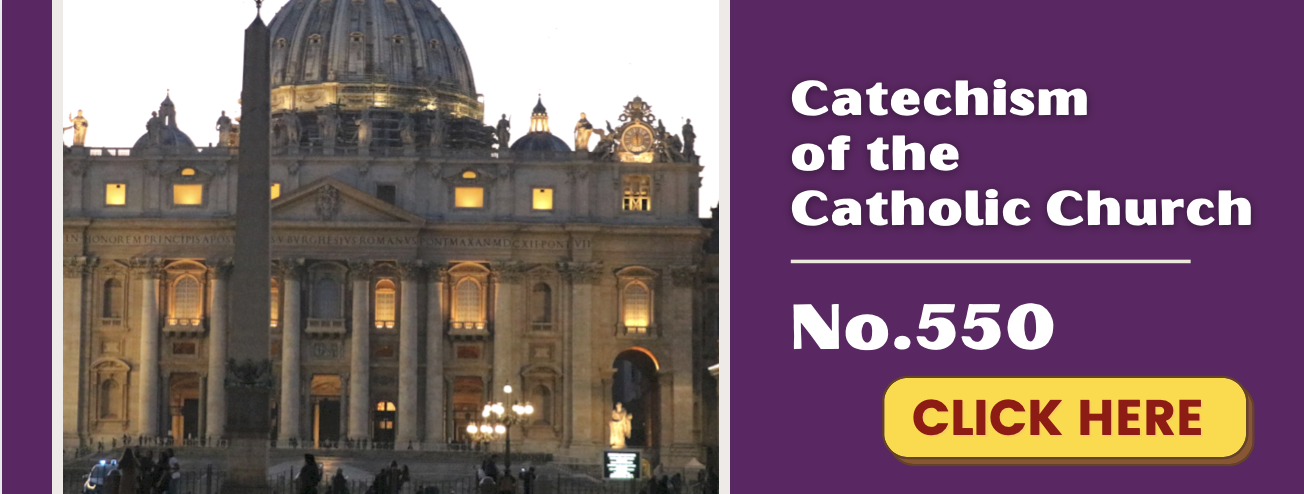

“For greater things you were born.” (Ven. Mother Luisita)
SUNDAY, December 5th Lk. 3: 1-6 “A voice of one crying out in the desert: ‘Prepare the way of the Lord, make straight his paths. Every valley shall be filled, and every mountain and hill shall be made straight, and the rough ways made smooth, and all flesh shall see the salvation of God.’”
TEN WAYS CONFESSION SETS US FREE by Fr. Ed Broom, OMV
Sadness, confusion, disorientation, darkness, anger, and often bitterness—all of these words describe the soul living in the state of mortal sin. In fact Jesus says that sin is slavery. (cf Jn. 8:34)
Film: The Mission and an Image of Sin
In the film The Mission, one character who is portrayed by Robert De Niro, as penance for murdering his brother, is given the penance to carry with him a cumbersome ball of his possessions by a Jesuit priest. Wherever this man who committed fratricide goes, he has to drag with him on a rope this truly cumbersome baggage. After having carried out this penance for days, even climbing a mountain with it, rising and falling, the priest agrees that he has done sufficient penance. The priest draws close to the sinner and with a sharp knife cuts and severs the rope and the baggage, and it cascades down all the way to the bottom of the mountain floor—freedom!
This slice from the film The Mission displays in one graphic scene a powerful image of what sin is like in our lives, but also the powerful effects in the soul of the sinner who repents and turns back to God through a good sacramental confession. One of the effects of sin is a binding slavery that is also like carrying a heavy weight wherever we go. The weight becomes heavier and heavier, almost to the point of being unsupportable. But then comes the transforming moment—a good sacramental Confession.
By making this well-prepared, honest, and sincere confession the bonds are broken, split asunder and freedom is experienced—the freedom of the sons and daughters of God!
Mercy & Confession
Saint Pope John Paul II, Saint Faustina Kowalska, as well as the Angelic Doctor, Saint Thomas Aquinas, unanimously agree that mercy is the greatest attribute in the Heart of Jesus the Savior. Mercy is God’s infinite love forgiving the sinner.
There has been abundant catechesis on how to prepare for Confession, booklets on the Ten Commandments, as well as books written on the Sacrament of Confession. However, possibly not enough has been said on the many wonderful effects that are produced in the person who makes a good confession.
This short article will focus on ten wonderful and uplifting effects that are produced in the soul of a good penitent.
1. Healing
The specific sacramental grace of the Sacrament of Confession is healing. Jesus is the Divine Physician. Sin wounds the soul! What cancer, leprosy, and disease is to the body, sin is to the soul. Every time we make a good confession, Jesus, the Divine Physician, with His gentle, tender, and loving Hand touches our soul, pours out His Precious Blood, and there is a healing. During His Public Life Jesus healed the blind, deaf, mutes, paralytics, lepers, and even raised the dead. Still now, through His Mystical Body the Church, Jesus continues to heal His sick members through the priests in the Confessional. It is true that Jesus saves us and heals us! Right now Jesus wants to heal your moral wounds!
2. Freedom from Slavery
As mentioned above in the scene from the movie The Mission, sin is interior slavery. Confession reverses the slavery and communicates true freedom—the freedom of the sons and daughters of God. To break the bonds of our past bad habits, our powerful addictions, our bad impulses and actions we need a powerful remedy. That remedy is direct contact with the Blood of Jesus, poured forth on Calvary that first Good Friday, but applied to every soul that makes a good confession. Instinctively we appall physical slavery and all that this entails. Should we not have an even greater abhorrence and repugnance for the interior slavery of sin and seek freedom as soon as possible? Why not try confession?
3. From Confusion to Peace
Another negative effect of living in sin is a real lack of peace and living in a state of constant confusion. Saint Augustine defines peace as “the tranquility of order.” Sin is total disorder—the tower of Babel within. A good confession results in putting into practice the words of Saint Ignatius of Loyola as one of the purposes of the Spiritual Exercises, “To order the disordered.” Therefore, if you really want to experience a profound peace in the depths of your soul, why not try to make the best confession in your life? Your disorder will give way to order, and peace will follow!
4. Freedom from a Conscience Filled With Guilt
Living with guilt is truly hell on earth! People can go crazy or be driven to suicide due to a guilty conscience. Lady Macbeth was seen constantly washing her hands. This was an unconscious desire to be freed from the guilt of bloodshed and murder. She could not live with a guilty conscience that turned out to be a moral executioner. For that reason Shakespeare truly asserted: “Conscience does make cowards of us all.” Could it be that many people have recourse to medicine, to taking pills to try to assuage and suppress the guilt that they are bearing in their conscience? Why not try confession and experience the purity of an innocent conscience? With respect to confession, never forget: it is free of charge. Also, there are no negative side-effects that often come about by taking medicine.
5. Joy: Rejoice in the Lord
Saint Thomas Aquinas states that all people are called to experience happiness or joy. If we look around us—at work, at school, on the road or freeway, we find all too often a lusterless, bland, and sad environment. Why is this the case if all are called to live in joy? The reason is this: many are looking for joy in the wrong places. Still more, many confuse pleasure with joy. Pleasure can be bought; joy is a fruit of the Holy Spirit! Sin produces sadness in the soul. Only God can give us true joy. For this reason Saint Paul reminds us: “Rejoice in the Lord always. I say it again, rejoice in the Lord.” (Phil. 4:4) Our Lady in her powerful hymn of praise, the Magnificat, echoes the same sentiments: “My soul proclaims the greatness of the Lord; and my spirit rejoices in God my savior.” (Lk. 1:46-47)
Catechists have told me over the years that when a child is waiting to make their first confession, they experience fear and anxiety, but after confessing, they leave the confessional radiating joy. Do you want to experience constant joy? Why not make it a habit to go to confession frequently!
6. The Paschal Mystery: From Death to Life
If we have the misfortune of committing a mortal sin, we lose the grace of God and His Friendship. However, we should never give in to despair—that is the worst of sins! Like the Prodigal Son, we should return to the home of our loving Father and launch ourselves into His loving arms, and He will forgive us. Saint Therese of Lisieux stated boldly that even if she committed all the worst sins in the world, she would run and launch herself into the Father’s arms with boundless trust! The Father’s arms are like an elevator to heaven!
The great Saint Augustine, who lived a sinful life into his early thirties, stated that a good confession is a Lazarus experience. If you remember, Lazarus died and Jesus raised him from the dead, summoning him from the tomb after he was buried for four long days. (Jn. 11:1-44) By making a good confession we are summoned to leave the tomb of our sins and come back to a life of grace!
7. Curative and Preventive Medicine
Confession is like a medicine that heals the wounds of our soul (as mentioned in the first number). However, Confession can also serve as a means to prevent future falls! I remember once when I was coming down with a cold and a friend suggested that I take a couple tablets of Airborne, which I did take. What a blessing! The cold that was about to overtake me for probably ten days to two weeks was halted in its tracks! The same can be said of frequent confession! If we commit a mortal sin, then we should run to the confessional as soon as possible. Nonetheless, frequent confession, even of venial sins, can serve as a remedy to prevent us from falling into the spiritual sickness that we call sin! We all know from experience, better to prevent a fall and a break, than to heal!
8. An Act of Humility to Crush Your Pride
As a result of Original Sin we are all infected with the Capital Sin of Pride and we often are motivated by pride and self-love. Making a good confession can help us to grow in the opposite virtue that is essential for holiness and so pleasing to God: humility. In the Diary Divine Mercy in My Soul, Jesus revealed to Saint Faustina the three essential qualities of a good confession: transparency (total sincerity and openness), humility, and then obedience to the Confessor who represents Christ. It is important that when we confess, we do not confess the sins of our husband (or wife), our neighbor, or others! Nor should we rationalize, justify, or gloss over our sins. Rather, humility means we tell it exactly like it is!
9. Growth in Self-Knowledge
Another huge blessing that flows from a well-prepared and well-confessed confession is an increase in self-knowledge. The Greek philosopher Socrates stated: “The unexamined life is not worth living.” A noteworthy historian interjects: “He who does not know history is condemned to repeat the same errors.” Ignatian spirituality insists constantly on the importance of self-knowledge, knowing oneself and the movement of the spirits in one’s life.
Saint Ignatius asserted that one should never, ever leave off the daily Examen Prayer, which is directed at self-knowledge and the awareness of God’s constant presence in our lives. The desert Fathers had a short but extremely important axiom: “Know thyself.” For that reason, the persons who examine their conscience well, confess well, and consult the priest-confessor sincerely will definitely grow in self-knowledge. By knowing themselves well—their virtues as well as their sins—they can avoid falling into many future sins and avoid future tragedies!
10. Fervent and Efficacious Holy Communions
Another exceedingly important effect of a good confession is more efficacious and fervent Holy Communions. These two Sacraments that we should receive frequently are intimately interconnected. A simple analogy could be useful: try to imagine your front room glass window pane. You have failed to clean it for more than a year. Consequently, the window has become smeared and sullied by dust, dirt, and smog, put simply, the polluted environment. So the day comes when you decide to do house cleaning and on the list is to clean that front window. You go to the store to buy Windex—a powerful and efficacious window spray. There you are, generously spraying the window, and then with a dry newspaper you rub and rub. What do you notice? The window is now clear and sunlight is pouring through the window in its totality! Before, the window was half opaque; now it is completely transparent and the full light of the sun can penetrate and inundate the house!
The same can be said with our soul which is like a window pane. Sin sullies, besmirches, and dirties our soul. With Confession, our dirty soul is cleansed with the Precious Blood of the Lamb of God who takes away the sins of the world. Our soul becomes pure, clean and transparent. Then when we receive Holy Communion, Jesus who is truly the Light of the world like an atomic bomb explodes and radiates light, and the light of Jesus’ Presence inundates the whole room of our soul. For that reason Jesus said, “I am the Light of the world” (Jn. 8:12); then He said, “You are the light of the world.” (Mt. 5:14) Thus the end result of frequent and worthy reception of these two sacraments, Confession and Holy Communion, is holiness! We are able to obey and put into practice Jesus’ command: “Be holy as your heavenly Father is holy.” (Mt. 5:48) And, with Jesus, we become a light to others!
Conclusion
Saint Pope John Paul II made this comment with respect to Our Lady and the Sacrament of Confession. He said that the Marian Sanctuaries—Lourdes, Fatima, Guadalupe, etc.—are spiritual clinics. In other words, we go to Marian Sanctuaries to meet Jesus, the Bread of Life, in Mass and Holy Communion, but also we meet Jesus who is the Healer of our heart, mind, and soul in Confession!
Let us turn to Our Lady whom we invoke as “Mother of Mercy” and “Health of the Sick” to help us live out life to the max by having frequent recourse to the Sacrament of Confession, the true expression of the loving and merciful Heart of Jesus!
Saturday of the First Week of Advent

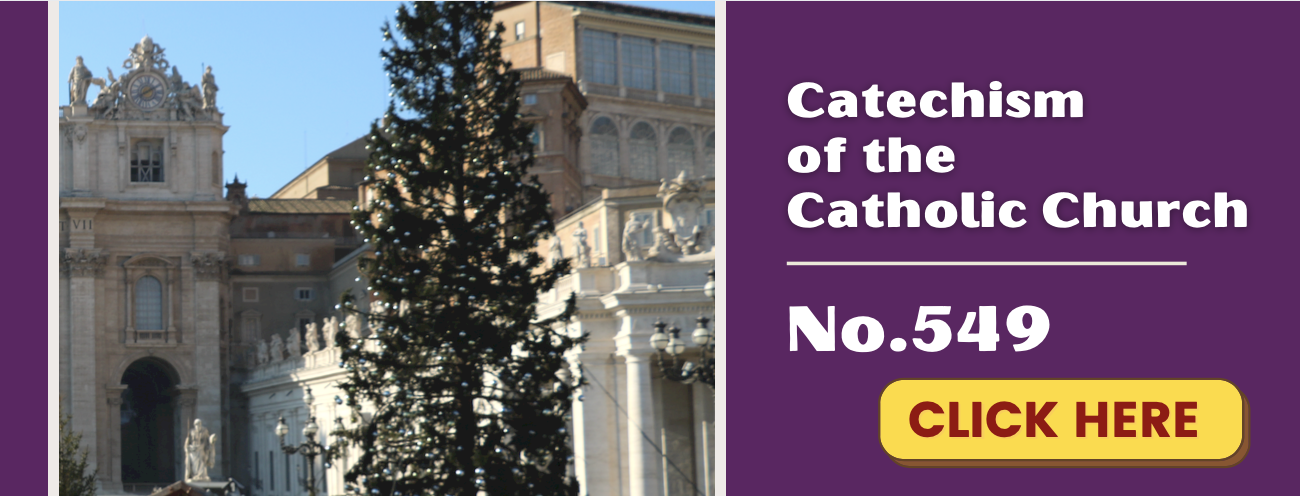

“For greater things you were born.” (Ven. Mother Luisita)
SATURDAY, December 4th Mt 9: 35–10: 1, 5a, 6-8 “At the sight of the crowds, his heart was moved with pity for them because they were troubled and abandoned, like sheep without a shepherd.”
The Lord is my shepherd, nothing shall I lack.
He makes me lie down in green pastures,
he leads me beside quiet waters,
he refreshes my soul.
He guides me along the right paths
for his name’s sake.
Even though I walk
through the darkest valley,
I will fear no evil,
for you are with me;
your rod and your staff,
they comfort me.
You prepare a table before me
in the presence of my enemies.
You anoint my head with oil;
my cup overflows.
Surely your goodness and love will follow me
all the days of my life,
and I will dwell in the house of the Lord
forever.
Not only is Jesus our Good Shepherd (Psalm 23), but He gave us His own Mother to be our Loving Mother!
MARY IS TRULY OUR LOVING MOTHER by Fr. Ed Broom, OMV
Saint Therese of Lisieux, a young Carmelite saint who died at the tender age of 24 years, loved the Blessed Virgin Mary very much and she was known to have said: “It is true that Our Lady is Queen of Heaven and earth, but at the same time she is more Mother than Queen.” This is the wonderful topic that we would like to address in this short exposition on the Blessed Virgin Mary, “God’s Masterpiece of Creation.” (Saint Louis de Montfort)
MARY AS MOTHER. In all truth it can be asserted that Mary is indeed the Mother of God. Mary is also the Mother of the Church, which is the Mystical Body of Christ. But of great importance to each and every one of us, Mary is our own loving Mother.
MARY’S TITLES AND PRIVILEGES. Mary indeed has many titles, for example, Mystical Rose, Tower of David, Tower of Ivory, Ark of the Covenant, Virgin most pure, Virgin most holy, Gate of Heaven, Morning Star, and many other poetic, mystical, as well as Biblical titles. Nonetheless, of all the titles and privileges that can rightly be given to Mary, the greatest of all of these is this: MARY IS THE MOTHER OF GOD!
MARIAN DOGMAS. Up to this point, the Church has officially declared four Marian dogmas, a truth revealed by God through the Church that must be accepted. They are: Mary’s Immaculate Conception, Mary’s Divine Maternity, Mary’s Perpetual Virginity, and finally, Mary’s Assumption into heaven. Of these sublime Marian privileges or Marian dogmas, the greatest and most sublime is Mary’s Divine Maternity—which means that Mary was chosen by God to be His Mother; Mary is truly the Mother of God. This we celebrate every year on Christmas, as well as to start off the New Year on January 1st.
MARY AS MOTHER: THE ROLE OF A MOTHER. On a natural plane, a mother has these basic qualities. First and foremost, the nature of a mother is to give birth to the child she has nurtured in her womb. Then a mother nurtures her little child, clothes her child, protects her child from danger or getting hurt, educates her child intellectually as well as morally and spiritually, heals her child’s wounds, listens to her child, corrects her child when necessary, comforts her child by her tenderness and concern, and finally and most important, loves her child without limits, irrespective of where the child is and what the child has done—her love is vast as the ocean!
All of these maternal qualities can be attributed to Mary our Mother on a higher and more sublime plane. Let us now look at these motherly attributes and apply them to Mary as our Heavenly Mother. In the words of Saint Therese: “It is true that Our Lady is Queen of Heaven and earth, but at the same time she is more Mother than Queen.”
1. MARY AS MOTHER GIVES LIFE. Mary is the full of grace from the very moment of her Immaculate Conception in the womb of her mother, Saint Anne. Grace is the supernatural life of our soul. Mary prays for us so that we will attain grace beginning with our Baptism; she prays for us so that this grace will grow and abound during our entire life; finally, she prays for us to have the grace of all graces—to die in the state of grace, so we will be saved for all eternity. Mary my Mother, attain for me life and life in abundance!
2. MARY AS MOTHER NURTURES OUR SPIRITUAL LIFE. Through a fervent prayer life in which we speak often and confidently to Mary, our loving Mother, she attains for us growth in our spiritual life. Once again, Mary, the full of grace, attains for us special insights in our intellect and touches of grace in our soul, so that we may grow and flourish like a healthy tree growing alongside an abundant and gushing stream.
3. MARY AS MOTHER HELPS TO CLOTHE US. Adam and Eve, after committing the Original Sin, recognized their nakedness. On a spiritual plane, when we are imbued with sanctifying grace through Baptism, we are spiritually clothed with the most exquisite garment. Mary as our Mother prays for us that we will always be clothed with this garment of grace, and if we lose it due to mortal sin, Mary as our Mother prays for us so that we will recover grace through a good Sacramental Confession.
4. MARY AS MOTHER WATCHES OVER HER CHILDREN TO PROTECT THEM. Mary as Mother is keenly aware of the many dangers that her children are exposed to from within and from without. The devil, the flesh, and the world are in constant pursuit of our attention, as well as our soul. Mary as Mother has her careful, attentive, and watchful eye gazing upon us with love, and she warns us through grace and through inspirations of the dangers that encroach upon us.
5. MARY AS MOTHER EDUCATES US. As a good mother strives to provide a good education for her children, so does Mary. Father Robert Fox, a true expert on Our Lady, most especially Our Lady of Fatima, pointed out that Our Lady of Fatima came in a very special way as TEACHER!!! The words and messages of Our Lady of Fatima turn out to be a superb and excellent teaching, an excellent catechism, a clear and poignant signpost on how to arrive at what is most important—our eternal salvation. Jesus and Mary are the best of Teachers; let us listen to them and obey their advice!
6. MARY AS MOTHER HEALS HER WOUNDED CHILDREN. If a child falls off a bike into a mud-puddle and cuts their knee, their mother is the first one to run and succor the child. Lifting the child out of the mud, kissing the child, embracing the child, cleansing the child and changing their clothes, dressing the child’s wound, and finally giving the child some hot chocolate—these are all gestures of a loving mother. When we are wounded, Mother Mary comes to us speaking words of wisdom: Let it be… Do not worry… I am here to bring you healing. We should bring our gaping wounds to both Jesus, the Wounded-Healer, and Mary, the Mother of Jesus the Wounded Healer!
7. MARY AS MOTHER LISTENS TO US. A true mother is ready to listen to what is in the heart of her child. On a much loftier plane, Mary as our Mother is always ready to listen to us, respond to our problems, help us in our needs. The beauty of Mary as LISTENER is the simple but all-consoling fact that Mary is never too tired, occupied, absorbed, or if you like, too busy to listen to us whenever we want to talk to her. We should get in the habit of talking to Mary as often as our heart desires. Mary’s ears are always attentive to the supplications of her children. Moreover, not only does Mary listen to us with her ears, but also with her Immaculate Heart, and she understands us perfectly!
8. MARY AS MOTHER CORRECTS HER WANDERING CHILDREN. A loving mother is not bashful or slow to correct an errant child. If there is a wandering and hungry wolf outside, the mother will keep her child inside and lock the door, especially if that child is curious and tends to wander. Fraternal Correction indeed is a dimension of the theological virtue of charity, which Saint Thomas Aquinas defines as: “Charity is willing the good of the other.” An example of Mary correcting her children is, again, in the Fatima messages. Mother Mary warned that most souls are lost due to sins of the flesh, and that many souls are lost due to a lack of prayer and sacrifice. Gently but firmly, Mary as Mother exhorts us, her children, to intensify our prayer life, to be willing to live a more sacrificial life, and to strive to live a life of greater purity. This reminds us of the words of Jesus in the Sermon on the Mount: “Blessed are the pure of heart; for they will see God.” (Mt 5:8)
9. MARY AS MOTHER COMFORTS HER CHILDREN. In the midst of the many sufferings, trials, tribulations, afflictions, and setbacks in this short life on earth, which is merely a short pilgrimage on the highway to heaven, Our Lady as loving Mother ardently desires to comfort us. Among the many consoling titles of Mary is Our Lady of Consolation. Still more, the Marian prayer that we say to conclude the most Holy Rosary of the Blessed Virgin Mary is that of the HAIL HOLY QUEEN. This consoling prayer starts with these words: Hail Holy Queen, Mother of Mercy, Our Life, Our Sweetness and Our Hope! Beyond a doubt, these few words are like a gentle dew descending upon the dry and parched desert of our soul. Indeed, in the sorrows, sadness, and failures that we all experience in life, which is a valley of tears, we should run to Mary as our Mother to comfort us. She will come quickly to soothe our sorrows with the comfort and consolation of her loving heart!
10. MARY AS MOTHER TRULY LOVES US, AND LOVES US INTENSELY! A natural mother loves her children. However, human love has limits and it often wanes, declines, and can even grow cold. This is reality! Not so in the case of Mother Mary. The love of the most pure and Immaculate Heart of Mary never wanes, diminishes, or grows cold. It is a constant, intense, and faithful love. Mary as Mother loves us irrespective of where we are, what we have done and what we have failed to do. Her love for us is most pure and perfect. Possibly the best way to understand to a limited degree the love Mother Mary has for you and for me would be by meditating upon the words of the Doctor of Grace, the great Saint Augustine: “If you were to put all the love, of all of the mothers, of all times and places together, then the love that Mary has for you is much greater!” In other words, it is impossible to fathom the inexpressible, sublime, and ineffable love that Mary as Mother has for you!
In conclusion, we hope and pray that starting now you will experience the extraordinary power of the presence of Mary in your life, most especially as your Heavenly Mother.
Memorial of Saint Francis Xavier, Priest

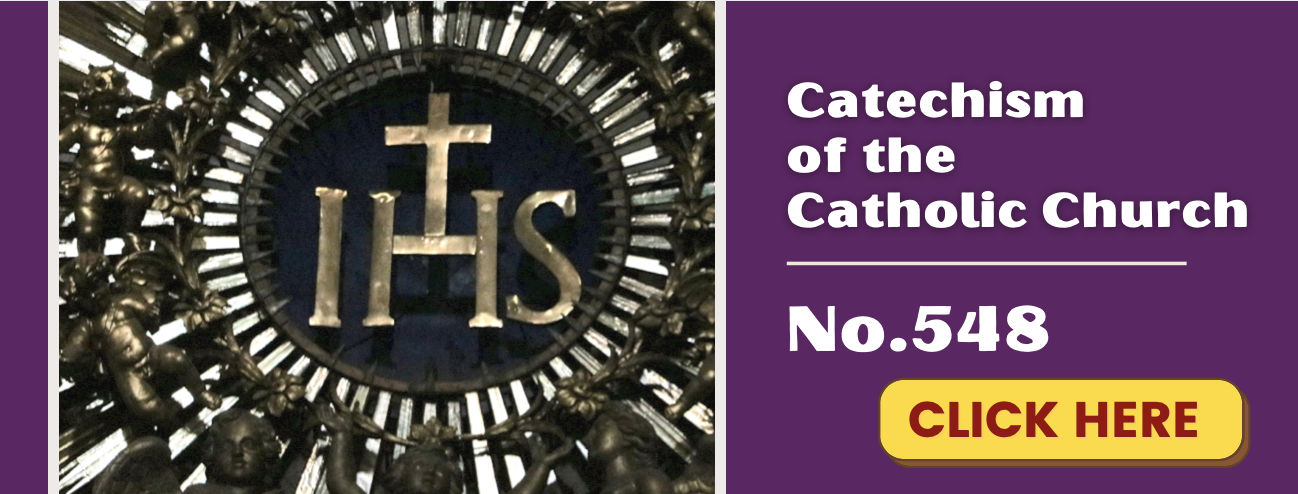

“For greater things you were born.” (Ven. Mother Luisita)
FRIDAY, December 3rd Mt 9.27-31 Alleluia Verse: “Behold, our Lord shall come with power; he will enlighten the eyes of his servants.”
In today’s Gospel Jesus heals two blind men according to their faith in Him! For those who have faith, Jesus heals our blindness.
…of sin that blinds us, through the Sacrament of Confession.
…of ignorance of Christ, through the Liturgy of the Word in Mass, as well as our daily Holy Hour praying with the Gospels.
…of blindness to Jesus’ real presence in His Body, Blood, Soul, Divinity in the Eucharist and Holy Communion—and in the tabernacles in all the churches around the world until the end of time. Faith is believing in what we cannot see on the word of the one who says it! These are Jesus’ own words: John 6:25-59 “Very truly I tell you, unless you eat the flesh of the Son of Man and drink his blood, you have no life in you. Whoever eats my flesh and drinks my blood has eternal life, and I will raise them up at the last day. For my flesh is real food and my blood is real drink. Whoever eats my flesh and drinks my blood remains in me, and I in them.”
…and of blindness to Jesus present in our neighbor: “Truly I tell you, whatever you did for one of the least of these brothers and sisters of mine, you did for me.” (Mt 25:40)
JESUS COMES OUT TO MEET US—HOW? By Fr. Ed Broom, OMV
On one occasion, Saint John the Baptist, seeing Jesus, fixes his eyes intently on Him and says: “The Lamb of God who takes away the sins of the world.” Two of John’s disciples see and hear Saint John pointing to Jesus and describing Him as “The Lamb of God who takes away the sins of the world”. These two disciples leave the Baptist to follow Jesus. They spend the rest of the day in Jesus’ company. This experience leaves a profound and indelible impression on their lives.
One of them is named John. The other, named Andrew, is overflowing with joy and enthusiasm and cannot contain himself, he has to share this impressive encounter. Andrew hurries to his brother Simon proclaiming that he has seen, met, and spent time with the Lord Jesus. When Simon encounters Jesus, He says: “You are Peter”… giving him a new name. Thus the friendship between Jesus and these early Apostles begins and grows for the rest of their lives, with more Apostles joining them.
Two thousand years have transpired since these encounters between Jesus and His first Apostles. These meetings with Jesus radically transformed their lives. They became followers, and all of the Apostles—with the exception of Judas, who betrayed Jesus, and John, the beloved disciple—were called by the Master to pour forth their blood as martyrs, giving powerful testimony to their love for Jesus, their Lord, God, Savior and Best Friend.
Is it possible for us now to have an encounter with Jesus—to meet Jesus, listen to Jesus, talk to Jesus, be a friend of Jesus, and fall in love with Him as the center of our lives? The response is a resounding YES!!!
At the Last Supper discourse, Jesus consoled the Apostles with these words: “I will not leave you orphans. I will send another, the Paraclete, to be with you”. (Jn 14:16, 18) Before ascending into heaven, He called the disciples to Him for the last time. Once again Jesus spoke to them with consoling words of reassurance: “Go now and teach all nations and baptize them in the name of the Father, the Son and the Holy Spirit. And behold I am with you always even until the end of time.” (Mt 28:19-20) Then before their eyes, Jesus ascended into Heaven where He sits at the right hand of God the Father.
WHERE THEN IS JESUS? Jesus said that he would be with them always until the end of time, and immediately afterwards, He ascended into Heaven disappearing from their sight. Where is Jesus? He is in Heaven with the Father and the Holy Spirit in His glorified Body—never to leave His eternal dwelling place. However, Jesus is indeed with us now in a different, but still very real way!
THE MYSTICAL BODY OF CHRIST: THE CATHOLIC CHURCH. Jesus said: “Heaven and earth will pass away, but my Words will never pass away!” (Mt 24:35) Jesus is the Way, the Truth, and the Life. He indeed is present in His Church, the Catholic Church, and will be until the end of time. The Church is His Body and we are His members. Indeed, Jesus is the Head of the Body, reigning from Heaven, and we are all individual parts or members of His Body here on earth.
THE CHURCH: RELIVES THE LIFE OF JESUS EVERY YEAR. Every year the Church, the Mystical Body of Christ, relives the life of Our Lord and Savior Jesus Christ. How is this accomplished? Precisely in this manner, through the Church Liturgical Cycle.
We have a real and powerful encounter with Jesus every time we attend and participate in the Holy Sacrifice of the Mass fully, actively, and consciously. The Lord Jesus plays out this powerful encounter especially in two ways: through Word and through Sacrament.
THE WORD. In every Sunday Mass, we have the privilege of listening to three Readings from the Bible, the Word of God—an Old Testament Reading, an Epistle/Letter often from Saint Paul, and of greatest importance, the Gospel, the very Heart of the Bible. Still more, we pray or sing the Responsorial Psalm after the First Reading. With ears and heart open, God is truly speaking to us. With the young Samuel in the Temple, we should humbly beg the Lord with these words: “Speak, O Lord, for your servant is listening.” (1Sam 3:10) As Jesus spoke to John, Andrew and Peter, so He desires to speak to us and we must attune our ears and listen attentively!
SACRAMENT. Different than our Protestant brothers and sisters, our spiritual nourishment is double: the Word of God, followed by reception of the Sacrament of the Eucharist. The Vatican II documents express this concept in terms of the TABLE. We are nourished at the first Table by the Word of God; then at the second Table by the Bread of Life, which we call the Eucharist, or Holy Communion.
If you like, our minds are inundated and flooded with light through the Word of God. Then our souls are inundated, penetrated and imbued with Jesus, the Bread of Life, every time we approach the Eucharistic Banquet in a state of grace. The graces we receive from this banquet are commensurate with our humility, purity of heart, confidence and, most important according to Saint Thomas Aquinas, our ardent hunger and thirst for Him.
THREE LITURGICAL CYCLES: THE SUNDAY MASS ENCOUNTER WITH JESUS. At times we hear critics of the Mass shouting out that it is always the same, expressing boredom and a frustrating monotony. Actually, nothing could be further from the truth! Indeed, variety is the spice of life. Every New Church Year, which commences with the First Sunday in Advent, the Sunday Mass Readings change. In fact there are three distinct Liturgical Cycles, manifesting a wide variety of differences!
YEARS A, B, C. The three different Liturgical Years are categorized by three distinct letters: Year A, Year B, and Year C. These differences last a full year! It is easy to understand! In Year A, every Sunday in Ordinary Time, the Gospel of Saint Matthew is proclaimed. Then Year B, the Church reads and proclaims the shortest Gospel—Saint Mark. Finally, Year C, the Church culminates with the Gospel of Saint Luke.
SYNOPTIC GOSPELS. These three Gospels that are read, Year A, B, and C are termed the Synoptic Gospels. By Synoptic is meant a certain similarity in the Gospels. Nonetheless, each Gospel manifests a different dimension or perspective of the Life of Jesus—the very center and Heart of all of the Gospels.
As a conclusion, Peter, Andrew and Saint John the Evangelist had powerful encounters with Jesus, the Lamb of God who takes away the sins of the world, over 2000 years ago. However, we can encounter the same Lord Jesus in His Mystical Body, the Church every day in the Holy Sacrifice of the Mass.
This is accomplished in the most efficacious manner by attentively listening to the Word of God which can flood our minds with the Light of Truth. But even more by opening our hearts and souls to receive Jesus the Bread of Life. Let us seek out Jesus, our Best Friend, He is anxiously waiting for us!